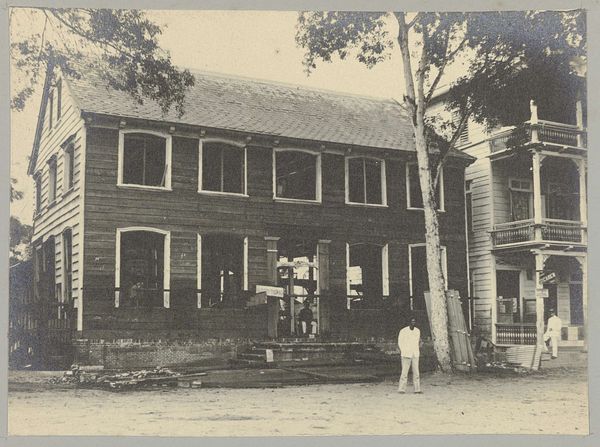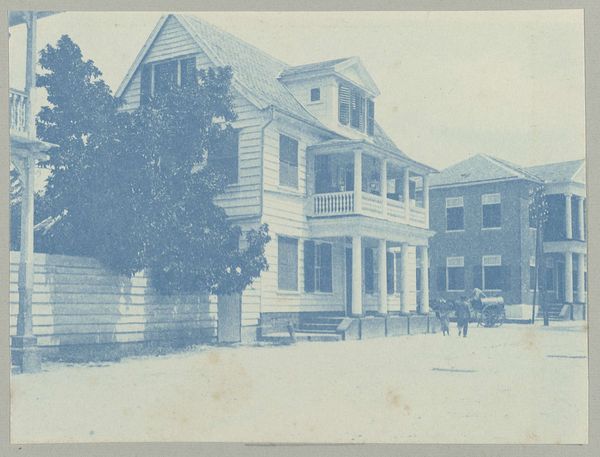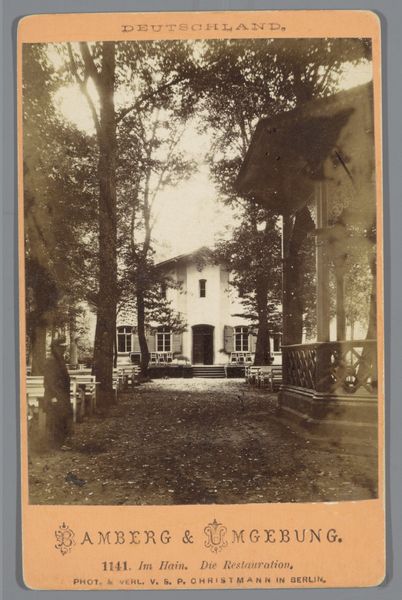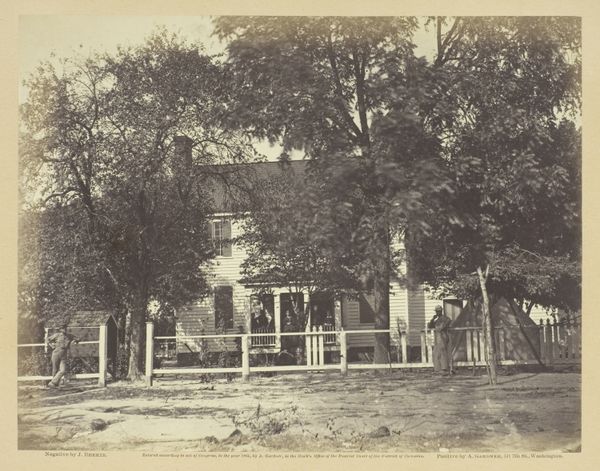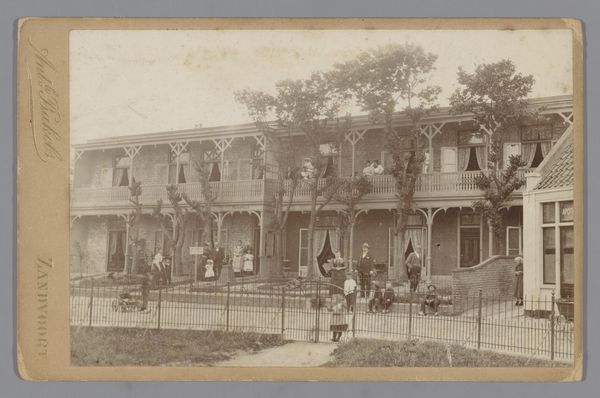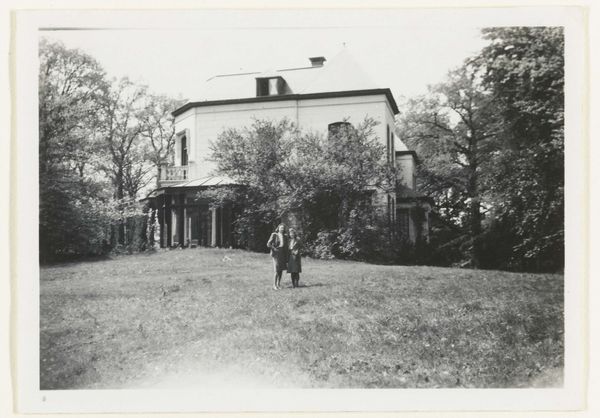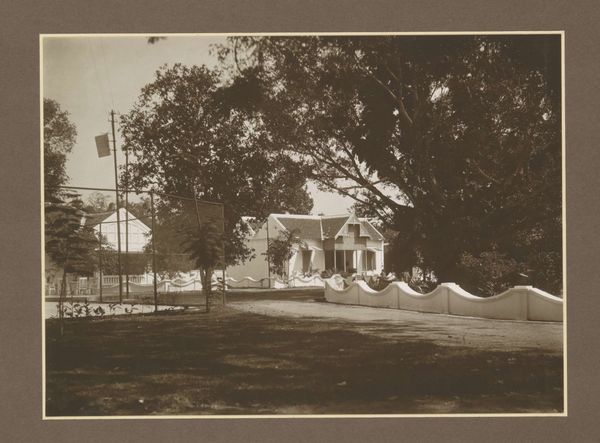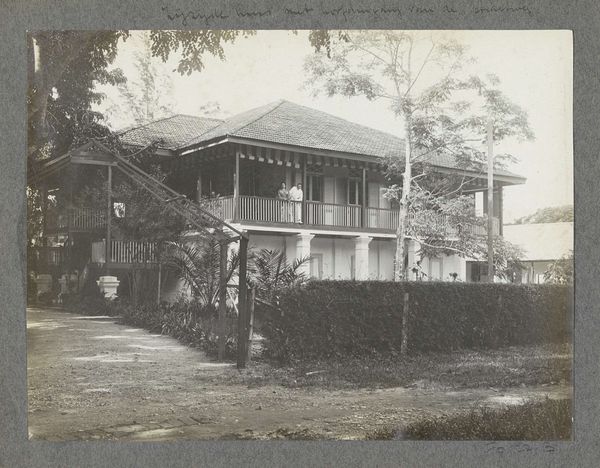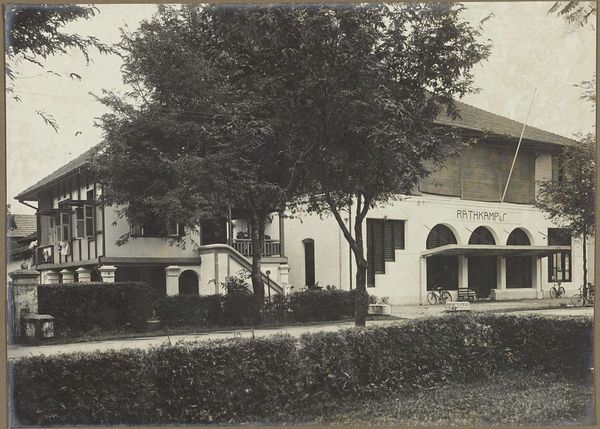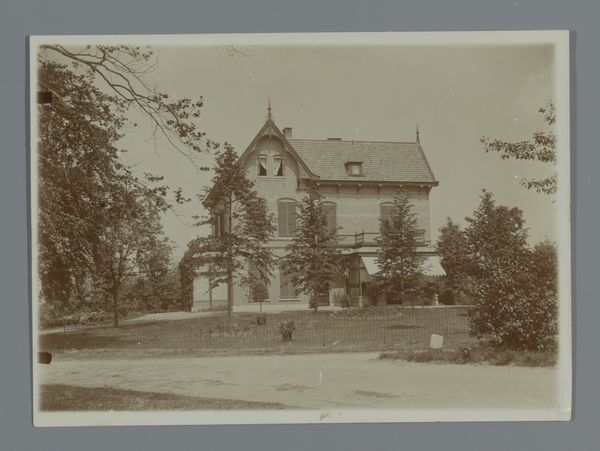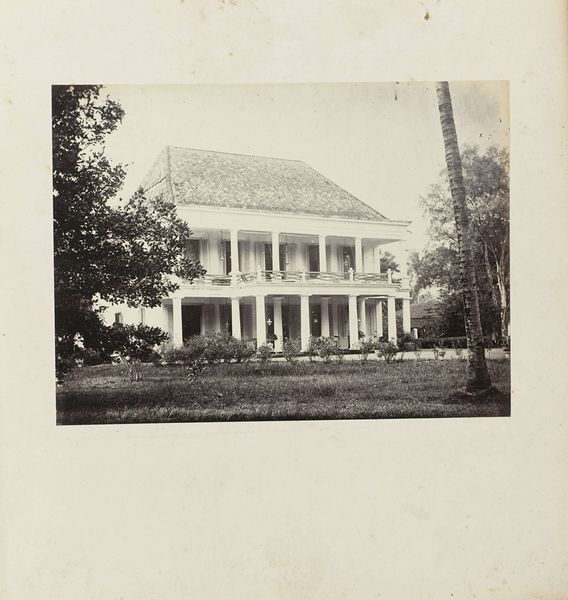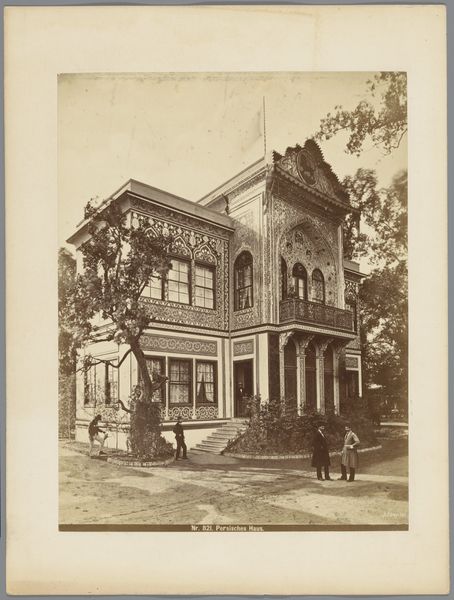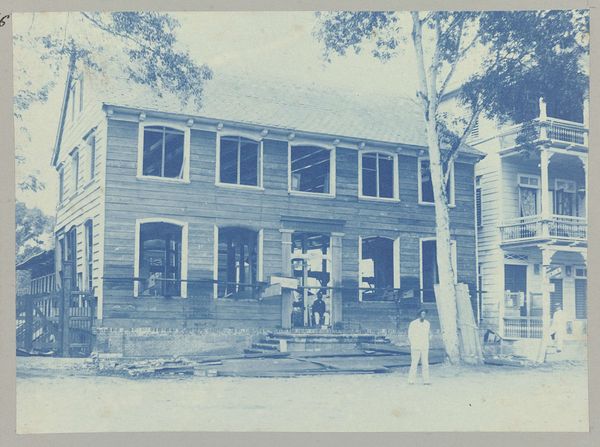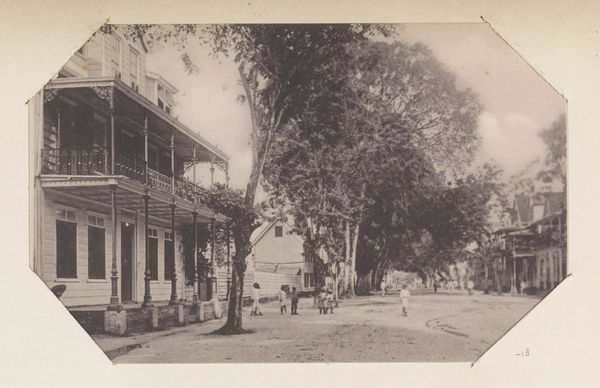
photography
#
portrait
#
black and white photography
#
war
#
landscape
#
outdoor photograph
#
black and white format
#
photography
#
soldier
#
monochrome photography
#
history-painting
#
building
Copyright: Public Domain
Curator: Gazing at this black and white photograph by Alexander Gardner, created sometime between 1861 and 1865, I'm immediately struck by the stillness, a strange calm before, during, or perhaps after the storm. The play of light and shadow is almost dreamlike. Editor: Dreamlike, yes, but a nightmare rendered in high contrast. We're looking at "Headquarters of General Hooker," and what I see are men positioned on these precarious balconies like figures caught between two worlds—the world of relative domesticity suggested by the building itself and the brutal world of war. Curator: Precarious is a great word. It reminds me of a stage set. Almost like they are caught up in a melodrama, or a sort of theatre piece gone terribly wrong. Editor: The architectural style of the building also adds a layer. Its ornamentation feels out of sync with the stark reality that these soldiers inhabit. That dissonance tells a story in itself. A visual reminder of what is being fought for, the very nature of 'home,' family, and all the ideological weight that carries. Curator: I keep wondering what they're thinking, perched there. Gardner captures such an ordinary, everyday moment, but loaded with so much unspoken dread and anxiety. It's almost voyeuristic of us. The image freezes them but, oh, so unnervingly. Editor: Photography in the Civil War was a disruptive force because, as opposed to painting, it had this perceived objectivity, and it documented things exactly as they were. Now, of course, we understand the camera's manipulation of perspective. Consider also how the act of image-making often flattens out so much lived experience for these men who will eventually return 'home.' Curator: "Flattens" feels too gentle— "erases" perhaps? Or more simply "abstracts," pulling these complex individuals back into that grand narrative of "war", making them simply "soldiers." And Gardner, he is caught, as are we, in this whole problematic enterprise. Editor: Absolutely. It is worth asking how can we use it as a counter-narrative, challenging our pre-conceived notions? Curator: Indeed. What is it asking us now, all these years later? Editor: Let us not avert our gaze.
Comments
No comments
Be the first to comment and join the conversation on the ultimate creative platform.
